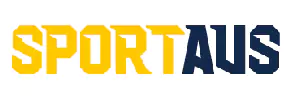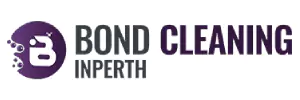
Overview
Concussions are common in high contact sports such as Australian Rules Football, Rugby, Boxing, etc. Any traumatic blow to the head canlead to brain injury. Concussion is a type of brain injury and acomplex physiological processprompted due to biomechanical forces. It can happen to anyone who sustains a direct blow to the head or an indirect blow to the face,neck, or body causing the force to suddenly transmit to the head.
Most high contact sports athletes have certified athletic trainer (ACT) remains available during games to treat players if they suffer head trauma or any other injury. The role of the ACT is to ensure the player is well enough to play and remains fit. Usually concussions are unreported and undiagnosed in sports which is a serious issue because untreated injuries like concussion can cause prolonged symptoms or illness like depression, anxiety disorder, cognitive impairment, headaches, etc. It is reported thatpeople in sports thathad concussions but received proper care and managed their health, recovered quickly and did not report any lasting symptoms. Thus, our concussion in sports education program is important. There is still lack of awareness regarding the issue and people don’t know how to manage a concussion.
How Should A Sports-Related Concussion Be Evaluated?
According to neurologists a concussion is usually managed as per the severity of the symptoms and amount of trauma. During an evaluation, the doctor, a certified medical professional or any healthcare provider available at the time should listen to the concussed person. Here are some other things he/she should do.
- Determine the patient’s vital signs
- Check the level of consciousness
- Rule out any other injuries to the spine, neck, etc.
Medical professionals are required to follow guidelines for managing a concussion.One of the most important guideline to follow is to that the athleteis evaluated by ahospital emergency department immediately if they lose consciousness due to a head, neck, spine, or any other injury that can result in brain injury. If a healthcare professional is not present when a sportsperson or player suffers concussion, here are the symptoms to look out for in addition to contact a doctor immediately.
- Dizziness and imbalance
- Feeling nausea or vomiting Confusion
- Headache
- Vision troubles (double or blurry vision)
- Short-term memory loss
- Ringing in ears
- Cannot focus or concentrate
- Sensitivity to light
- Loss of smell or taste
- Having difficulty falling asleep
- Fainting
What Can YouDo To Prevent Or ManageA Concussion?
Our organisation is dedicated to raise awareness among the masses about concussions and its consequences.There have many cases reported on news of pro-athletes suffering from long-term consequences of brain injury sustained during games.Over the years, sports authorities, facilities, and sponsors havebecome more serious about the issue. The need of the hour is for athletes, players, and general people to understand how to prevent concussions and manage them. Besides following the guidelines proposed by various national and international organisations, here is what you can do.
- Educate yourself about the symptoms and consequences of concussions.
- Read case studies especially if you or someone you know plays a contact sport for recreation or professionally.
- Ensure you or your loved ones wear personal protective equipment such as helmet or a head gear that protects against head trauma.It is estimated that over 50% concussions and head injury related issues reduced when player wore helmets.
- Good posture and balance during games also significantly improved the chances of an individual not getting hurt.
- Don’t try to move the affected person too much. Ask them questions to judge their responsiveness and ensure they are cognitive.
- Check the head, neck and surrounding area for bleeding, cuts, swelling, bruises, and other signs of injury.
- Don’t shake the person as it can worsen their condition.
- Ensure to follow-up with the concussed person is performed for a week or more. Ask them if they have recurring headaches, trouble sleeping, irritability, trouble sleeping, problems focusing etc.
- If you observe the symptoms of concussion in a player, immediately refer them to a doctor or the certified medical professional of the team.
If you want to know more about concussion management, get in touch with us to learn about our concussion in sports program. Get to know how we provide guidance and spread awareness.





